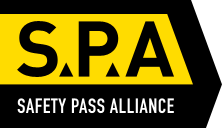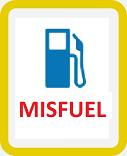Royal Wedding – Health and Safety
With the marriage of Prince William and Kate Middleton fast approaching, lots of people will be building up to celebrate with get-togethers and street parties. We're positively encouraging everyone to get out there and mark the occasion!
Helping the nation celebrate
There's a lot of myths around health and safety, especially when it comes to what people should and shouldn't do. When it comes to parties and celebrations, there's often no obligation under health and safety law at all, so you're able to go right ahead.
Here's our top ten tips to organising your celebration:
- Decide the size of your event and where you are going to hold it – this will help you find out if there are extra things you need to do or if you can just go ahead with your friends.
- If you're organising a celebration where you're not making money or employing anyone, then visit HSE's Volunteering pages[1] for great advice about whether any laws apply.
- Before your celebration, have a quick think about making your party a complete success. If there's lots of traffic alongside your street party and you have lots of children coming, thinking about the risks in advance can be helpful but isn’t always necessary unless you’re a commercial organisation. This isn’t health and safety, just common sense.
- If you're having a big celebration, speak to your local council about whether you need any extra permissions to do with road closures, alcohol, selling food or performances. You can find the contact details at DirectGov – Connect to your council
 [2]
[2] - Lots of people are offering advice on holding street parties without getting tangled up in red tape. We really like these guides:
- Have a look at HSE's Myth of the Month[6] – here we've taken a light hearted look at some of the silly stories that have made it in the news…and they might help you deal with the jobsworths!
- If you're planning on running a big event to make money by selling tickets, you will have responsibilities to your customers.
- Challenge anyone who says you can't go ahead 'for health and safety reasons'. Find out exactly what it is that they think is wrong – often it's not health and safety at all. If there's a genuine issue, ask what you can do to put it right…mostly there's an easy way to make sure everyone has fun while staying safe.
- Remember that we've celebrated Royal weddings as a nation before without getting tied up in red tape and compensation culture. Go out and tell everyone it can be done again and be a champion for common sense.
- Have fun and enjoy the celebrations!





















